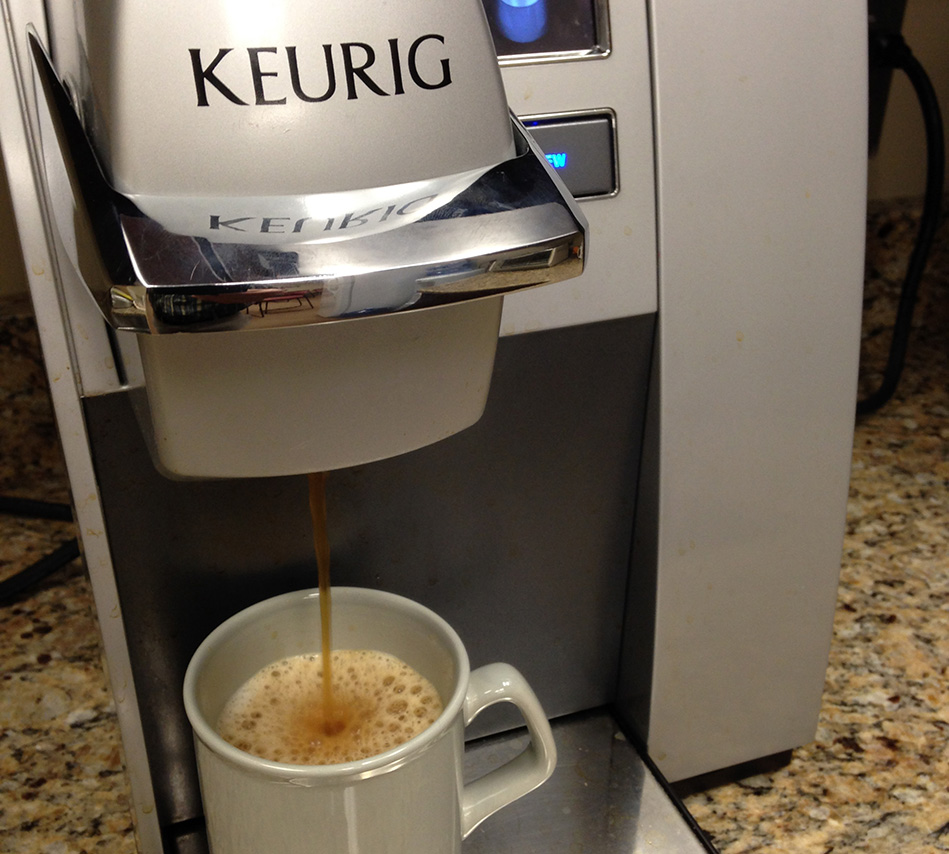Business students win big with plan for biodegradable Keurig K-Cups

BY Andrew Baulcomb
May 4, 2016
DeGroote MBA students emerged as champions from the International Business Ethics Case Competition (IBECC), held in Boston recently.
Michael Anjos, Alexandra Antonucci, Krystina De Benedictis, Joshua Rodrigues and Jonny Uruthiran earned top honours in the 30-minute and 10-minute competitions at the event.
The team chose to tackle the amount of non-biodegradable waste generated by Keurig K-Cups – the plastic containers also known as “pods” commonly used to brew individual mugs of coffee.
“It was phenomenal to see them win two out of three events, but not overly surprising, either,” says Milena Head, Professor, Information Systems, and DeGroote’s Wayne C. Fox Chair in Business Innovation.
“They put so much effort into this competition, and were so poised while being faced with tough questions from the panel of judges. The team handled everything in an expert fashion, and the judges made a point to note how very impressed they were after the competition.”
According to The Atlantic, nearly one third of American homes now has a pod-based coffee machine such as a Keurig. In 2014, those tiny pods accounted for nearly all of Keurig’s $4.7 billion in revenue.
The problem? They’re not recyclable. The New York Times reported last week that some 9 billion single-serve Keurig pods were sold last year alone. Enough pods exist to circle the globe more than 12 times.
Teams competed in three separate contests: a 30-minute presentation that examined the ethical, business and legal aspects of the issue; a 10-minute presentation that focused on the ethical dimension of the issue; and a 90-second presentation where one team member had to convince a Board of Directors of the ethical importance of addressing the issue.
The DeGroote solution to the K-Cup conundrum involved “a three-pronged approach,” says Head, offering detailed short, medium and long-term plans.
The short-term plan involved figuring out a way to break down and recycle the existing K-Cups in circulation.
Next, Keurig would begin using plastics that are recyclable. The Times notes this process is already underway, as Keurig recently switched to a recyclable polypropylene for new K-Cups. Still, these new pods are not biodegrade or reusable.
Finally, adhering to the students’ plan, Keurig would implement a new style of pod the team referred to as a “K-Cube,” which would be 100 per cent biodegradable.
Judges, organizers and competing schools praised the DeGroote team, which was heralded for its in-depth analysis, three-step solution and clear presentation style.
This year marked the 20th anniversary of IBECC, which is the oldest and most-renowned business ethics competition of its kind. Judges at the 2016 edition were “highly-distinguished leaders of business ethics,” Head adds.
The graduate level of the competition included teams from University of Oxford, Hong Kong University of Science and Technology, Arizona State University, State University of New York at Potsdam, Texas State University, University of St. Thomas and University of Miami.
The wins capped-off an impressive year for DeGroote MBA students, which saw great case competition victories at events across Canada and beyond (seven first-place, two second-place and two third-place finishes).
“This past year was an unprecedented, remarkable success,” Head offers. “Our MBA students dominated the national and international case competition scene, and made everyone take notice of DeGroote.”

